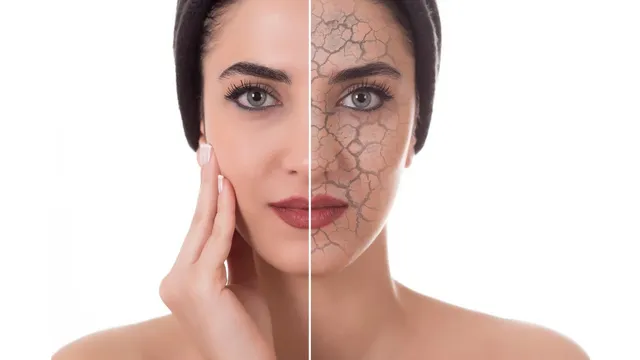- By Prerna Targhotra
- Thu, 27 Jun 2024 03:40 PM (IST)
- Source:JND
Signs Of Unhealthy Skin: One of the most sensitive areas of our bodies is our skin, which means it needs ongoing care and attention. It provides a clear view of what goes on within our bodies. Everything that we do, like eating certain meals, living in certain places, and being outside, strains and negatively impacts our skin.
Many obvious indicators of unhealthy skin exist, yet most of us tend to disregard them. Ignoring these problems can exacerbate skin disorders and give the appearance of damaged and ageing skin. These are some indicators of bad skin, which you should take seriously and see a dermatologist about.

Signs Of Unhealthy Skin
Excessive Oily Skin
Oily skin has several advantages even if it can block pores and aggravate acne breakouts. People with oily skin typically have thicker skin and fewer wrinkles because oil helps protect the skin. Achieving a balance between excessive oil production and preserving the natural moisture levels of your skin is crucial.
Acne
Acne, which affects people of all ages, can result in pimples, blackheads, or whiteheads. Numerous studies have shown that internal variables including dehydration, high blood pressure, poor digestive health, and many more can cause acne and blemishes to appear in particular skin zones.
ALSO READ: Add These 5 Ayurvedic Herbs To Your Routine To Prevent Dengue, Malaria And Other Monsoon Illnesses
Flaky Or Dry Skin
-1719483014551.jpg)
Signs Of Unhealthy Skin (Image Credits: Canva)
Dry skin or rough areas over the skin can provide the appearance and sensation of flaky skin, a condition known medically as Xeroderma. The American Academy of Dermatology (AAD) states that, among other things, dehydration, living in a dry or cold climate, and lengthy, hot showers can all contribute to dry or flaky skin.
Uneven Skin Tone
Numerous reasons, such as acne, UV damage, ageing, weather fluctuations, and the accumulation of dead skin cells, can result in uneven skin tone or texture. Feeling dry on your skin could indicate flaky or itchy skin. A buildup of dead skin cells may be the cause of rough spots on your skin.
Dark Spots
Dark spots, also called hyperpigmentation, are typically brought on by hormonal fluctuations, scars from acne, or prolonged sun exposure. Dark patches are an indication of excessive sun exposure and your skin's attempt to shield itself from further sun damage.
ALSO READ: 5 Simple Tips To Keep Your House Smell Refreshing In Monsoon
(Disclaimer: This article is for informational purposes only. It is not a substitute for professional advice, diagnosis or treatment.)

